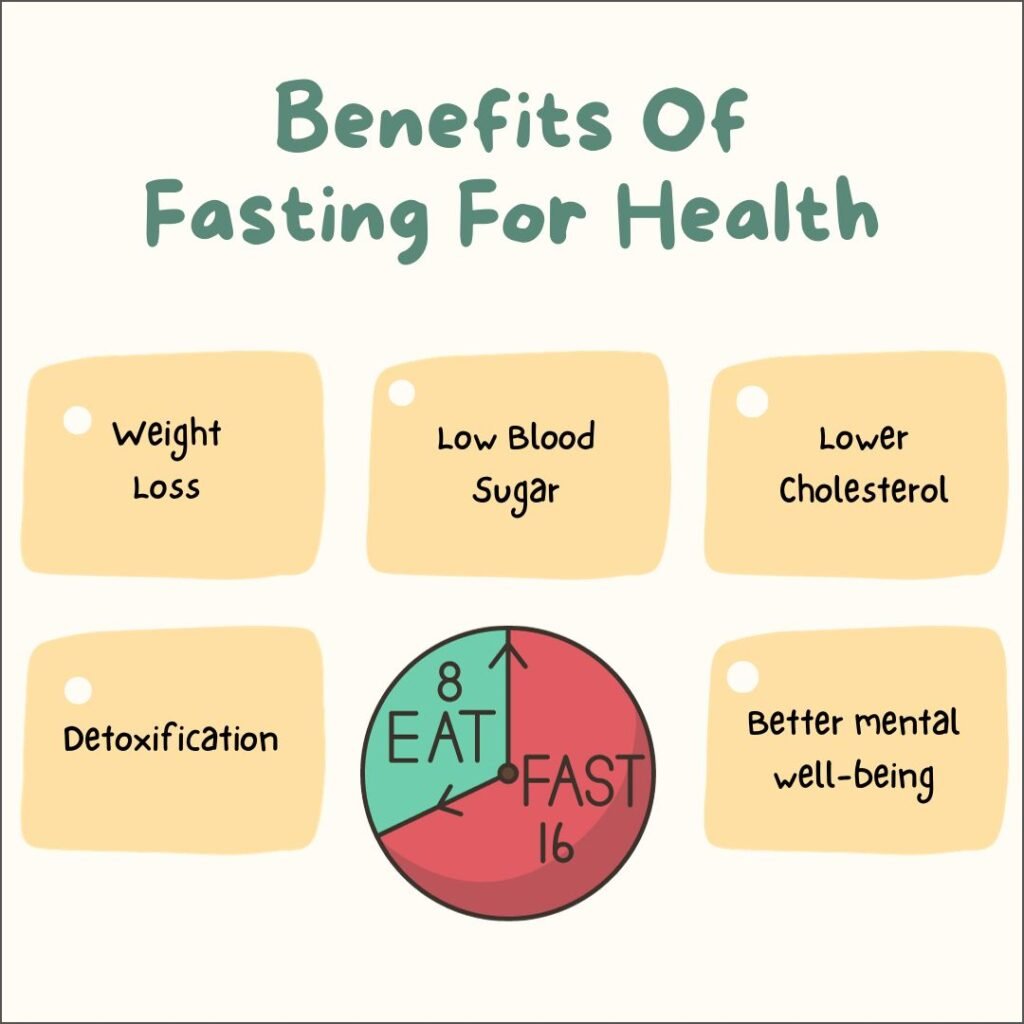
Intermittent Fasting: A Powerful Lifestyle for Better Health
In today’s busy world, people often search for simple yet effective ways to improve health. Among these, intermittent fasting has become one of the most practical approaches. Unlike strict diets, this method focuses more on when you eat rather than what you eat. As a result, it gives your body a chance to reset, boosts energy, and supports overall wellness.

At its core, intermittent fasting is not a restrictive diet but a lifestyle choice. Instead of tracking calories, you follow specific eating windows. For example, you may choose an 8-hour eating period followed by a 16-hour fast. During the fasting phase, your body uses stored fat for energy, which naturally helps with weight control. Therefore, you allow your body more time to digest food, repair cells, and restore balance naturally.
Popular Methods
Interestingly, intermittent fasting allows flexibility, making it easier to adapt to different lifestyles:

- 16/8 Method – Fast for 16 hours, then eat within an 8-hour window.
- 5:2 Method – Eat normally for five days, reduce calories on two days.
- Alternate-Day Fasting – Fast every other day, giving your system regular breaks.
- Eat-Stop-Eat – Choose one or two full fasting days each week.
Because of these options, almost anyone can find a fasting style that feels comfortable. The beauty of this lifestyle is that it can be personalized—you decide which method aligns with your schedule, energy levels, and long-term goals.
Key Benefits
When followed consistently, intermittent fasting may lead to impressive health benefits, such as:

- Weight Loss – Naturally reduces calorie intake and improves fat burning.
- Better Metabolism – Enhances how your body processes energy.
- Heart Health – May lower cholesterol and blood pressure.
- Brain Function – Supports mental clarity and focus.
- Anti-Inflammatory Effects – Helps reduce inflammation, which is linked to chronic disease.
- Longevity Support – Studies suggest fasting promotes healthy aging by improving cell repair.

Clearly, intermittent fasting goes beyond weight management, strengthening both body and mind.
Tips to Begin
Starting small makes the process easier. For instance, try skipping late-night snacks and extending your overnight fast. Gradually, you can move toward longer fasting windows. In addition, stay hydrated, choose wholesome meals, and limit processed foods. Some people also find it helpful to plan meals ahead of time so they avoid overeating once the fasting window ends.
Furthermore, remember that consistency matters more than perfection. It is better to follow a manageable routine regularly than to attempt an extreme schedule you cannot maintain. By building healthy habits slowly, intermittent fasting becomes smoother and more sustainable.
Myths and Truths

Although many people embrace fasting, some misconceptions remain. Some believe it slows metabolism, but studies suggest the opposite—it helps burn fat more effectively. Others worry about muscle loss, yet with enough protein and strength training, the body maintains lean muscle. Another common myth is that fasting means feeling tired all the time, but many people actually report higher energy levels once their bodies adjust.
Thus, intermittent fasting is safe for most healthy adults when practiced properly, as long as it is combined with balanced nutrition and good hydration.

Who Should Avoid It?

Despite its benefits, intermittent fasting does not suit everyone. Pregnant women, individuals with eating disorders, and those with certain medical conditions should avoid it or seek professional advice before starting. People with diabetes, low blood pressure, or those taking specific medications also need medical guidance. Therefore, consulting a healthcare expert is always the safest choice before making this lifestyle change.

Building a Long-Term Routine
Fasting is most effective when it becomes part of your lifestyle instead of a short-term fix. To stay motivated, track your progress, celebrate small wins, and focus on how you feel rather than just numbers on the scale. Pair fasting with regular exercise, proper sleep, and stress management for the best results. Over time, you will likely notice not just physical changes but also improved focus and a greater sense of control over your eating habits.
Final Thoughts

To sum up, intermittent fasting is more than a wellness trend; it is a lifestyle that supports energy, focus, and overall health. By choosing a method that fits your routine, staying consistent, and nourishing your body with wholesome foods, you can enjoy lasting benefits. With patience and dedication, this approach can transform your daily routine and help you achieve balance for both body and mind.

Aiman Fatima
October 8, 2025💪 “Love this! Fasting with mindful nutrition can boost energy, metabolism, and overall health.”